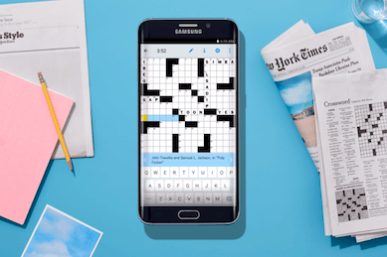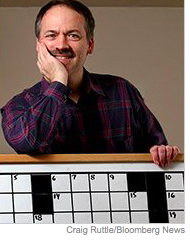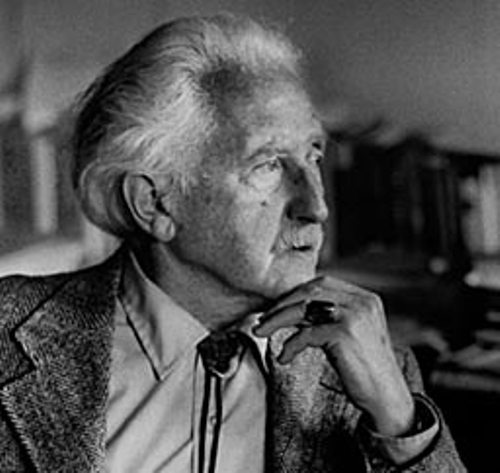My father played hockey in his teens, on rock-hard New Hampshire ice, and he continued playing until he was 70, and he would have continued playing had he not lost a battle in front of the net a dozen years ago, fallen backward, hit his head, and lost consciousness. His doctor told him to quit the game — quit the battles.
Dad did quit hockey, but he did not give up fighting the battles — he simply moved them to the dining room table or the couch or his dense oak desk, all places where he engages in combat with Will Shortz, crossword puzzle editor of The New York Times. These contests help him keep his balance in a game a bit more nuanced than hockey.

Today, for example, he is balancing a few swallows of orange juice that he always drinks from a vintage cut-glass sherry glass, a few half-cups of plain coffee in a plain Ikea mug, a few toaster waffles with real Vermont maple syrup — and the daily puzzle that Mr. Shortz has edited for The Times of Feb. 27, 2018.
The date might not be all that significant, except that it marks the day before my mother’s 88th birthday, and six days after my father’s 92nd — and every day these days is significant.

That Shortz is credited with editing the puzzle might not be all that significant, except that since roughly 1993, Dad and Shortz have been locked in almost daily combat, brawling for the disputed goal-rich territory in front of the net.
Of course, in February 1993, the puzzle was just one of many elements of my father’s day: working in his office at the college where he was an emeritus professor, cleaning the backyard of limbs fallen from the fragile winter trees in the backyard, perhaps even preparing for an upcoming hockey game in which he would play defense.
Today the puzzle is one of a very different assortment elements: bringing in the paper, bringing in the mail, working in his office that he shares with my mother in our new home, taking a walk if the weather is amenable, perhaps even preparing to watch a hockey game on TV — and of course working on the puzzle, brawling with Shortz.
This is how age has affected my father, by transforming his activities.
My father and Mr. Shortz (as Dad and The Times both refer to the law-school-trained Indiana native) have senses of language that are sometimes complementary – similar in the logical, mathematical way the puzzles are built, clued — and conquered.
Not only does Dad revel in uncovering the theme of the puzzle, he also gathers a great joy from sharing it with anyone in the room: “Mr. Shortz is feeling playful today.”
This has been true for at least as long as Dad has been banned from the hockey rink, but probably longer.
It is also his custom to remark on the predictably increasing level of difficulty of the puzzles as the week progresses. He is an engineer, so he sees predictability as a virtue.
“It’s Monday. Mr. Shortz should be easier today” eventually dissolves to “It’s Saturday. Let’s see what Mr. Shortz has in store for us,” with Dad gearing up for a fight on the ice that has softened since his days in New Hampshire.
~
Age is a driver of our environments — from the first rapidly expanding environment while we’re stuck on our backs smiling at increasingly familiar faces, to the later ones that include less mobility, but offer an affluence of accumulated experience and knowledge. The psychoanalyst and theorist Erik Erickson

proposes that in each of the developmental stages — he acknowledges eight, from infancy to adulthood — we are confronted by a psychosocial crisis. Erickson’s theory proposes that how we respond to each crisis determines our success and progress in life, at least in terms of developing into stable individuals. The first crisis we face – our first battle in front of the net – is “trust vs mistrust,” or whether we establish “a sense of trust in others” that will allow us to focus on other needs. Further work includes “developing a sense of identity in society, and helping the next generation prepare for the future.” Erickson’s final developmental stage identifies people of typical retirement age: 65+, and offfers us the psychosocial crisis of “Ego Integrity vs Despair:” a battle between holding it all together and making something of ourselves, and watching it all crumble to grain. In this ultimate conflict, the offered prize is wisdom. Erickson offers that before reaching this stage, we can already have “won” hope, will, purpose, competency, fidelity, love, and care. Wisdom is the glue that holds together all these other attributes.
~
Wisdom — a slippery skater who dodges definition, explanation, even recognition, on the way down the ice — is far more than knowing whether the top left box in the puzzle should be filled with an “A” or an “O.” The knowledge of a high school student might be able to fill most of the blanks — perhaps even catching the overlap between across and down, perhaps even finishing the puzzle early in the week — but it’s wisdom that recognizes the puzzle’s theme and applies how to work all the “prizes” together: hope, will, purpose, competency, fidelity, love, and care into a productive strategy, into a meaningful answer.
~
My father is now solidly in his 90s. It takes him longer to write in the answers. But with wisdom under his belt, the whole process makes much so more sense.
